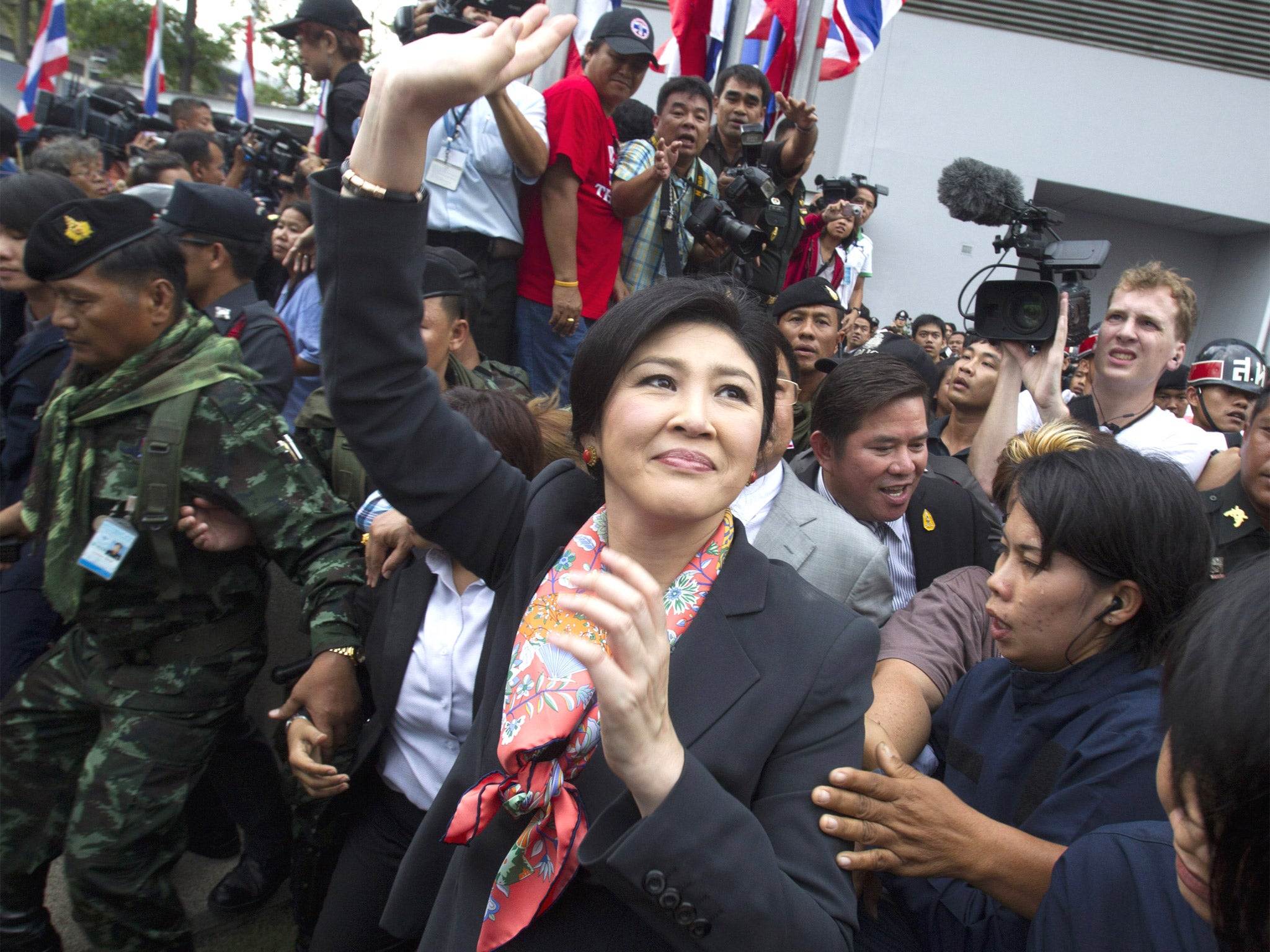Thai prime minister Yingluck Shinawatra ousted over corruption allegations

Thailand is confronting fresh turmoil and uncertainty after a court ordered the country’s prime minister and nine of her top ministers to stand down. It was the third time in seven years the court had forced out a government associated with former premier Thaksin Shinawatra.
The country’s Constitutional Court found Yingluck Shinawatra, a sister of Mr Thaksin and Thailand’s first woman prime minister, guilty of abusing her position when she ordered the transfer of a civil servant three years ago. The order had immediate effect, but the court said the remainder of her government could remain in place in a caretaker role until elections go ahead on 20 July.
Ms Yingluck, who was replaced as premier by the trade minister, Niwatthamrung Boonsongpaisan, a man considered very loyal to the Pheu Thai party leadership, went on national television to insist she had tried her best.
“We held true to the principles of honesty in running the country, and never acted corruptly,” she said.
The decision by the court, long seen as unsympathetic to the Thaksin family, will only exacerbate the political crisis that has beset Thailand since Mr Thaksin was ousted in a coup in 2006. Since then, two other administrations led by politicians loyal to him have been scuttled by the same court.
“Basically the court took a decision to sabotage democracy,” Sean Boonpracong, a political analyst and advisor to the government, told The Independent. “She was removed unfairly.”
The court claimed the transfer of a national security advisor in 2011 was carried out improperly and that as a result Ms Yingluck had breached the constitution. “Transferring government officials must be done in accordance with moral principle,” the court said, according to the Associated Press. “Transferring with a hidden agenda is not acceptable.”
The decision by the court follows months of protests by anti-government campaigners who have sought to oust Mr Yingluck and her administration. When she last year agreed to stand down and hold a new election, the main opposition party announced it was boycotting the election, rendering it essentially meaningless. The government has accused the protesters of rejecting democracy.
Ms Yingluck, who was first elected in 2011, and her brother have strong support from large swathes of so-called “Red Shirts” mainly located in Thailand’s north and north east and other rural areas. They also have support among working class people within Bangkok.
Those opposed to the Thaksins include Bangkok’s upper middle-class, elements within the army, farmers from the south of Thailand and part of the establishment that surrounds the Thai royal family. Earlier this year, one of the daughters of King Bhumibol Adulyadej posted photographs of herself on social media that were widely interpreted a sign of her support for the anti-government protests.
“What is interesting about the current [development] is the bloodless, legal nature of the approach - using the legal process to take what the coup couldn’t secure, and the polls couldn’t guarantee,” said Dr Liam McCarthy of Nottingham Trent University.
The unanimous decision by the court, announced a day after Ms Yingluck appeared before it to deny the charges against her, raises the prospect of more turmoil for Thailand, where scores of people have died as a result of political violence, and uncertainty as to whether the election on 20 July will proceed. At least 20 people have been killed since November and hundreds more injured
Supporters of Mr Thaksin and his sister are planning to hold a major rally on Saturday. Meanwhile, the leader of the anti-government protests, Suthep Thaugsuban, brought forward his own demonstration and told his supporters to travel to Bangkok for Friday.
“I think there will be a lot of public anger but it remains to see how the Red Shirts will respond,” said Giles Ji Ungpakorn, a Red Shirt who now lives in exile in Britain. “I think there will be more attempts to further undermine democracy.”
Mr Thaksin’s opponents say he is guilty of corruption and that he took decisions that directly helped him and his family. Mr Thaksin is living in exile in Dubai to avoid corruption charges and a plan announced last by the government to introduce an amnesty that would have allowed him to return was the spark for the most recent protests.
Join our commenting forum
Join thought-provoking conversations, follow other Independent readers and see their replies
Comments
Bookmark popover
Removed from bookmarks